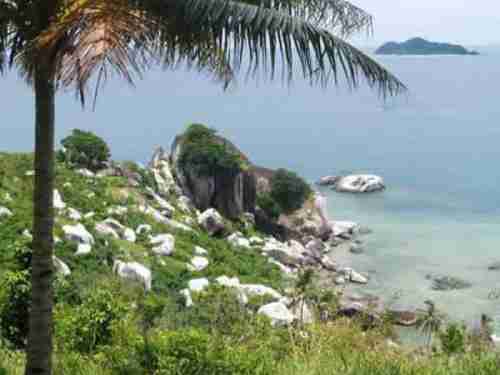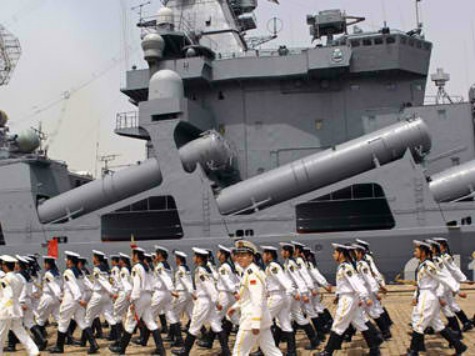
This morning’s key headlines from GenerationalDynamics.com
- Tensions grow with China over Indonesia’s Natuna Islands
- Reversing policies, Turkey and U.S. escalate involvement in Kobani
Tensions grow with China over Indonesia’s Natuna Islands

Senoa Island, in the Natuna island chain
Indonesia has tried to stay out of China’s ongoing fight with Vietnam and the Philippines over the former’s annexation of thelatter’s territories. Indonesia could do that because, even thoughChina was claiming Indonesia’s Natuna Islands in its annexation of theentire South China Sea, China’s navy was too far away from Indonesiato be of concern.
There’s little doubt that China would like to annex Indonesia’s NatunaIslands, whose waters are rich with fish and which is adjacent to theEast Natuna gas field, one of the world’s largest untapped reserves.
China’s increased belligerence, and the substantial growth of itsnaval and air power in the South China Sea, have caused Indonesia tospeed its naval buildup, although so far it’s still far more modestthan the buildup in Vietnam and the Philippines, and it has improvedits relations with Japan and the United States.
In fact, the last few years have seen an “amphibious forces creep,” agrowth in naval capabilities of several south Asian countries,including Burma (Myanmar), Thailand, Cambodia and Malaysia. One majortrigger for this buildup was the 2004 Indian Ocean tsunami, whichexposed these countries as woefully unequipped to engage in disasterrelief operations. Although much of the naval buildup has beenlabeled as being for humanitarian reasons, the last few years haveseen a buildup of offensive naval forces to counter China’sbelligerence. The Diplomat and Foreign Policy Research Institute (FPRI) and Reuters (25-Aug)
Reversing policies, Turkey and U.S. escalate involvement in Kobani
Turkey’s government on Monday made a surprise announcement that it willallow Kurdish peshmerga fighters from Iraq travel through Turkey toKobani, Syria, to fight against the Islamic State / of Iraq and Syria(IS or ISIS or ISIL).
Note: Peshmerga = Kurdish militias in Iraq. PYD = Kurdish militias inSyria. PKK = Kurdish anti-government insurgents in Turkey.
On Sunday evening, the White House announced that it was air-droppingweapons to the Kurdish militias fighting in Kobani:
So as you know, this evening, our time, overnight inSyria, the United States military delivered weapons, ammunitionand medical supplies to the forces fighting against ISIL on theground in Kobani. These supplies were provided by Kurdishauthorities in Iraq, and they were focused on enabling forces –including, of course, Kurdish forces in Syria — to continue theirfight against ISIL.
The U.S. announcement appears to be an escalation, though to the WhiteHouse it’s within the scope of previous announcements.
However, Turkey’s announcement is a clear reversal of policy, as thegovernment has recently said that it would provide no help whatsoeverto the PYD, equating them to the terrorist PKK.
The two announcements appear to be a face-saving way for both sides toprovide aid to the Kurdish militants in Kobani. The U.S. isn’tshipping American weapons to Kobani; it’s shipping weapons obtainedfrom the Iraqi peshmerga. Turkey isn’t allowing Turkish Kurds intoKobani; it’s allowing Iraqi Kurds into Kobani. Hurriyet (Ankara) and White House
KEYS: Generational Dynamics, Indonesia, Natuna Islands, Senoa Island,China, Vietnam, Philippines, South China Sea, Malaysia,Turkey, Kobani, Kurds, Iraq, Peshmerga, Syria, PYD,Kurdistan Workers’ Party, PKK
Permanent web link to this article
Receive daily World View columns by e-mail

COMMENTS
Please let us know if you're having issues with commenting.